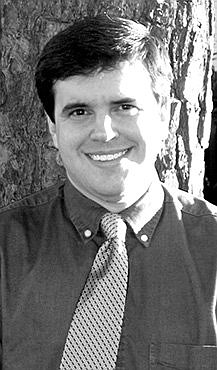By Dr. Ken Bridges
James Woodson Bates served as the first territorial delegate for Arkansas and was among the first judges in the history of Arkansas. While his career faced successes and setbacks alike, he left an important footprint on early Arkansas.
Bates was born in 1788 in Virginia. His parents were prosperous and were able to provide him with an excellent education. As a young man, he attended both Yale and Princeton universities, graduating at the age of 19. He returned to Virginia to become a successful lawyer, but he grew restless.
His older brother, Frederick Bates, had won an important political appointment to become territorial secretary of the new Missouri Territory. The prospects of the growing West appealed to the younger Bates, and he moved to St. Louis in 1816.
In 1819, learning that Arkansas would become its own territory, Bates moved to Arkansas Post and went into business as a lawyer and land speculator.
Bates was quickly appointed as a circuit judge, one of the first in Arkansas. Through this position, he would help craft important legal precedents that would guide the new territory.
A couple of months later, an election was announced for territorial delegate to the United States Congress. While delegates had no votes, it was an important symbolic position. Bates jumped into the crowded field of six candidates and won decisively.
An immense controversy erupted over a treaty with the Choctaw tribe in Mississippi and the federal government that eventually derailed his congressional career. In 1820, the Choctaws were forced to give up a portion of their ancestral lands in Mississippi in exchange for a smaller portion of land in Arkansas. The treaty proved deeply unpopular with Arkansas settlers and the Choctaws alike.
Bates voiced his objections, but as he had no vote, there was little he could do. The treaty passed the Senate. Nevertheless, it was later dismantled, and all Native American claims to any lands in Arkansas were wiped out by 1835.
While Bates had won re-election in 1821, the controversy damaged him and forced him not to seek a third term in 1823.
In spite of his political setback, the people of his adopted home town still admired him and renamed their city Batesville in 1824 in honor of his work for Arkansas. He would soon find new opportunities.
That same year, he was appointed judge for the Fourth Judicial Circuit, a position he would hold for the next four years. From 1828 to 1832, he served on the Superior Court, an appeals court.
In 1835, Bates was elected as a delegate to the state constitutional convention. Drafting a constitution for congressional consideration remained one of the last steps needed for Arkansas to become a state.
The convention tapped him to chair the committee on the legislative branch. He helped craft a careful balance in representation for the state legislature that represented the interests of all regions of the state, from the still-sparsely populated Northwest to the planters who dominated the Southeast to the more-densely populated Central Arkansas.
In his later years, Bates roamed across the state, taking a number of important positions. By 1836, he had ended up in Crawford County and served as a probate judge. In 1841, he was appointed registrar of the federal land office in Clarksville.
On December 26, 1846, Bates died at his home in Van Buren. He had left a profound mark on Arkansas law as an early judge and as the first territorial delegate for Arkansas. Today, his namesake city of Batesville is a thriving city of just over 10,000 people in Independence County.
Dr. Ken Bridges is a professor of history and geography at South Arkansas Community College in El Dorado and a resident historian for the South Arkansas Historical Preservation Society. Bridges can be reached by email at kbridges@ southark.edu.
